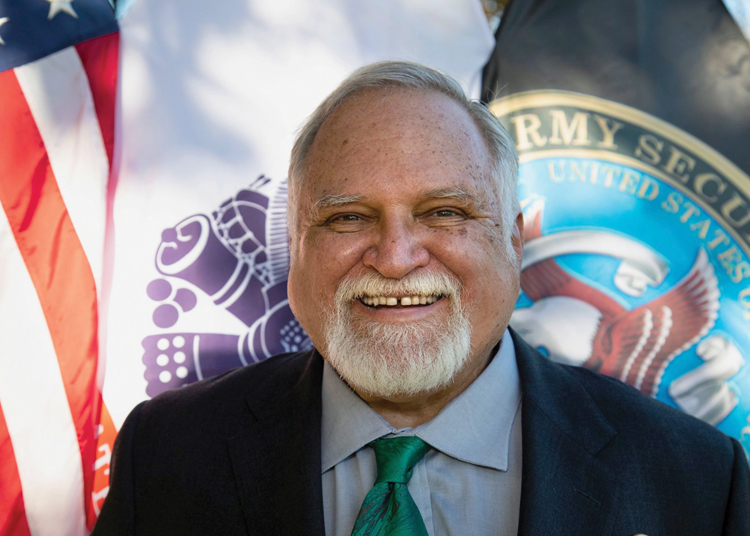‘Dirt Don’t Burn’ author to speak on Black education under segregation
Paula Phounsavath | 11/7/2024, 6 p.m.
Author Larry Roeder will discuss Virginia’s history of segregated schooling on Nov. 14 at the Library of Virginia, highlighting his book “Dirt Don’t Burn” and Black communities’ pursuit of educational equality in Northern Virginia.
The discussion will conclude the Library’s Carole Weinstein Author Series for the season. “Dirt Don’t Burn,” published last November and co-authored by Barry Harrelson, takes its title from a story shared by a former teacher who tried to heat her classroom without wood or coal. She explained to Roeder that “dirt is not fuel.”
 Larry Roeder
Larry RoederThe book addresses systemic racism against African Americans in Loudoun County, where Black students were denied educational opportunities from enslavement through 1968, when school integration was implemented.
“Dirt Don’t Burn” is important to read and share because it shows the value of learning about people who are different,” Roeder said. “It can reduce violence and show that beneath our skin color and personal practices, we are all human beings.”
Roeder leads the Edwin Washington Society, formerly the Edwin Washington Project, a research effort preserving newly discovered archives from Loudoun County schools documenting African American experiences. This work draws on forgotten records, NAACP archives and educational philanthropy records.
Roeder’s team was given the task by then-Superintendent Edgar Hatrick to research Black education history in Loudoun County leading up to 1968. While Harrleson – who was born and raised in South Carolina – does not consider himself an “expert on Black history,” his experiences in segregated schools in the South, along with witnessing white resistance to integration, inform his perspective.
“The book is the effort of a team, of whom I am most proud,” he said. “We were telling a unique history of segregated schools in one community dating back to the Civil War, a story important to Loudoun and to communities across the nation where this history has been lost or denied.”
“Dirt Don’t Burn” continues the Library’s exploration of Virginia’s resistance to school integration. In September, the Library hosted the 60th anniversary of Brunswick High School’s integration with a panel featuring the “Brunswick 15,” students involved in that historic event.
“It’s in the same vein, looking at the repercussions and after-effects of Brown v. Board of Education,” said Catherine Fitzgerald-Wyatt, the Library of Virginia’s director of education and outreach. “This is another example in Virginia where, after the Brown decision, it took several years for Loudoun County to gradually provide equal education for all children, Black and white.”
Loudoun County, often viewed as progressive and affluent, is no exception to the history of Black segregation, Fitzgerald-Wyatt noted. “One of the good things today is that the Edwin Washington Project is engaging [Loudoun] county students with this larger history,” she said.
Roeder also noted the presence of the Ku Klux Klan and white nationalists in Loudoun County’s segregated school history.
“When the former Ashburn Colored School was being restored, it was terribly vandalized,” he said. “But to the county’s credit, citizens across the political spectrum gathered at the schoolhouse to help erase the offensive graffiti.”
The talk will be moderated by Nathan Bailey of the Edwin Washington Project. Fitzgerald-Wyatt hopes attendees will appreciate the power of community.
“The takeaway is thinking about community impact,” she said. “Hopefully, people will leave inspired to see what stories might be hidden in their own communities and help bring them to light.”
A book signing will follow the talk. The event is free, but registration is required at va.virginia.gov/public/weinstein.







